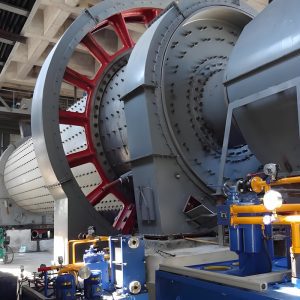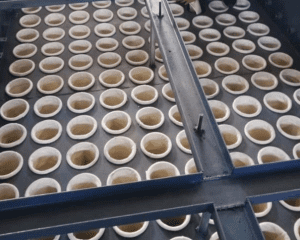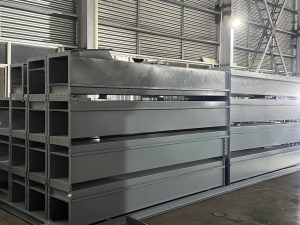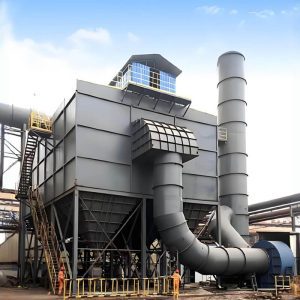Lors du choix d'un dépoussiéreur minier, plusieurs facteurs doivent être pris en compte pour garantir l'efficacité de l'équipement et le respect des normes environnementales. Voici quelques points clés et recommandations :
1.Exigences environnementales
Tout d'abord, il faut comprendre les normes d'émission de l'agence environnementale locale et les exigences spécifiques en matière de contrôle de la poussière. L'emplacement et la distance des différentes sources de poussière influent sur la conception et l'installation des hottes de dépoussiérage. Assure l'étanchéité globale ou locale en choisissant des matériaux durables qui facilitent l'entretien.
2. le concasseur et la goulotte d'évacuation
Détermine le nombre de broyeurs, la largeur du tapis d'évacuation et le sens de l'ouverture d'alimentation. Ces informations sont cruciales pour la conception du système de dépoussiérage.
3. Paramètres du crible vibrant
Après le broyage des matériaux, ceux-ci doivent passer par un crible vibrant. Il est essentiel de connaître les spécifications de la surface du crible, le nombre de couches et la largeur de la bande d'évacuation.
4.Disposition du matériel
Mesure la distance entre le centre de l'écran vibrant et le concasseur pour décider de l'emplacement de l'écran vibrant. dépoussiéreur.
5. conception de la vitesse de l'air
Généralement, conçois la vitesse de l'air pour la hotte intégrée entre 1,5 et 2 mètres par seconde, tandis que la vitesse du conduit doit être d'environ 18 à 20 mètres.
6.Sélection de la vitesse de filtrage
La vitesse de conception du dépoussiéreur minier ne doit pas dépasser 1 mètre par minute. Si l'exigence en matière d'émissions est inférieure à 30 milligrammes, il faut augmenter le débit d'air. En termes simples, des normes d'émission plus élevées nécessitent une réduction de la vitesse de filtrage à l'intérieur du dépoussiéreur.
7.Dimensions de l'équipement
Choisis la taille de l'équipement de dépoussiérage minier en fonction des conditions réelles du site pour assurer un fonctionnement efficace.
Importance de la vitesse de filtrage
La vitesse de filtration a un impact significatif sur l'efficacité du dépoussiéreur. Elle est définie comme le rapport entre le débit de gaz réel et la surface de filtrage. Une vitesse de filtrage plus élevée peut réduire la surface de filtrage nécessaire, ce qui diminue les coûts des sacs filtrants et les investissements initiaux. Cependant, une pression excessive dans le dépoussiéreur peut entraîner une perte de débit d'air et un nettoyage inadéquat, ce qui augmente l'usure des sacs et réduit la durée de vie de l'équipement.
D'après le principe de fonctionnement des dépoussiéreurs à sacs, la vitesse de filtrage influe également sur la collision et la dispersion des poussières. Lors du choix d'un dépoussiéreur, il faut tenir compte de la taille, de la distribution et du contenu des particules de poussière capturées. Si l'efficacité du dépoussiérage diminue, la vitesse de filtrage diminuera également. Il est donc crucial de sélectionner les sacs filtrants et les méthodes de nettoyage appropriés.
Caractéristiques de conception et de performance
D'après l'expérience passée, pour les poussières mécaniques provenant des opérations minières, on choisit généralement une vitesse de filtrage de 1,2 mètre par minute. Ce choix permet d'obtenir une faible pression de fonctionnement de l'équipement, une bonne ventilation et un nettoyage complet. De plus, le dépoussiéreur minier utilise un contrôle automatique de la pression différentielle pour le nettoyage inverse, en ajustant le cycle de nettoyage en fonction de la concentration de poussière à l'entrée. Cette méthode est plus raisonnable et plus fiable que le nettoyage chronométré des dépoussiéreurs à sac à impulsions.
La conception du boîtier du dépoussiéreur suit le schéma d'écoulement d'un dépoussiéreur cyclonique. Le flux d'air chargé de poussière entre tangentiellement, créant un effet cyclonique local qui réduit la charge sur les sacs filtrants. Cet équipement convient à divers processus miniers, tels que le forage, le dynamitage, le transport et le concassage, et permet de traiter efficacement la poussière générée et de minimiser la pollution de l'environnement.
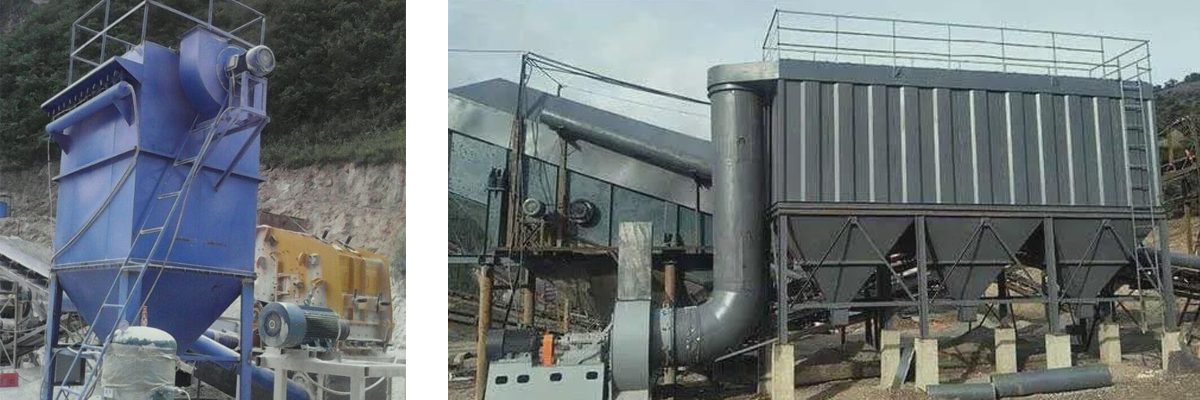
Conclusion
Les dépoussiéreurs miniers jouent un rôle essentiel dans l'exploitation minière et le traitement des minerais. Grâce à une conception et à une sélection scientifiques, ils peuvent assurer un contrôle des poussières conforme aux normes de santé et d'émission. Leurs caractéristiques efficaces et automatisées permettent non seulement d'améliorer l'efficacité opérationnelle, mais aussi de réduire les coûts d'exploitation. Choisir le bon équipement de dépoussiérage est essentiel pour parvenir à un développement durable.
Si tu as des questions sur les dépoussiéreurs pour mines ou si tu as besoin de plus d'informations, n'hésite pas à nous contacter. nous contacter. Nous sommes là pour te fournir un soutien et des services professionnels.

